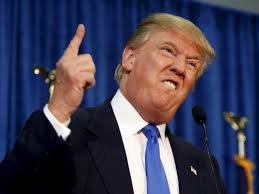
The editorial staff at the WSJ never ceases to amaze.
In their recent blurb, High Trump Anxiety, they sound like a professional big honcho employment agency seeking jobs for some disgruntled out of work so-called political campaign pros. Some might say hacks, but we're feeling a bit more generous today than usual.
Mrs. Clinton has 21 press aides including a communications director, a lead press secretary, a day-to-day spokesman, a travelling press secretary, a rapid-response director, a rapid-response spokesperson and a variety of handlers dedicated to regional and specialized outlets. This is what it takes to drive a coherent national message.
Apparently, the writer of this pathetic paragraph doesn't understand it's a clear, concise reason why many are voting against Mrs. Clinton. It's another version of It Takes Village all over, a mere foreshadowing of how needlessly complicated, heavy-handed and messy government will be under her. Hasn't the Obama tribe after eight years taught this benighted writer anything?
Mr. Trump may believe a similar apparatus is a waste of money, and that he can run his campaign out of his hip pocket like the Trump Organization: shoestring, centralized and ad hoc, with nearly every decision made at the top. He may think, too, that the political professionals are dummies and he’ll keep winning like he did in the primaries.
Dear Editorialist: The public has had a belly full of political professionals. What part of that in this election is it so hard for you to get? There's a certain exclusiveness of "decisions made at the top," especially when you're not there.
But the pros know that competing in a general election, and appealing to a voting-age population of some 240 million, is different than winning 40% of the Republican primary vote. It also doesn’t inspire confidence that Mr. Trump’s political and business operations are so fungible: Many Republicans will conclude that he chose the self-interest of his personal brand in a petty Trump U lawsuit over increasing his odds of winning the White House.
Dear Editorialist: P.S. Spare us the fungible stuff. We won't think any less of your brilliance. Nor for that matter any more. His political and business interchangeability is not why most folks are going to vote for him. That, it seems, is another part you can't get your petty little editorial mind around.
Take our money, please, so we can have some influence if the seemingly impossible happens. Your money here, kind sir--we almost hate to say it--is not fungible.




